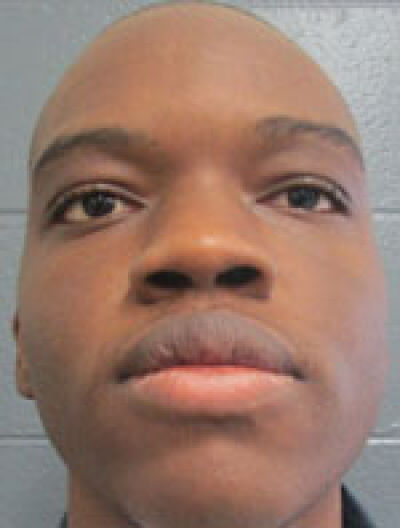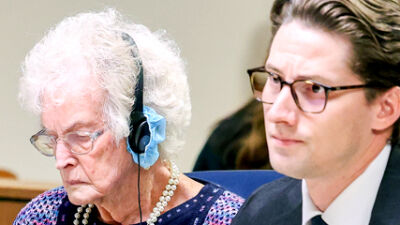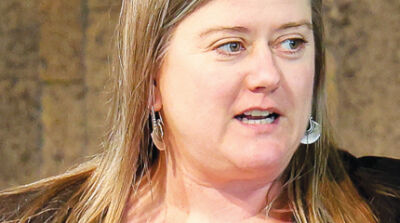EASTPOINTE — A Detroit man has been sentenced on charges including second-degree murder in relation to the disappearance of an Eastpointe teenager in 2022.
At the conclusion of a jury trial in May, Jaylin Omar Brazier, 25, of Detroit, was found guilty of second-degree murder and tampering with evidence related to the disappearance of his cousin, Zion Foster, 17, of Eastpointe.
Foster was last seen Jan. 4, 2022, when she left home to spend time with her cousin, Brazier. When she didn’t return home, her mother filed a missing persons report with the Eastpointe Police Department.
Brazier was named a person of interest in her disappearance. On Jan. 19, 2022, he turned himself in, and on Jan. 22, Eastpointe police said he would be charged with lying to investigators.
During his March 31, 2022, sentencing after he had pleaded no contest, Brazier said Foster died while they were together. He acted out of panic after that, he said, and others present in the court alleged that he put Foster’s body in a dumpster.
He was sentenced to 23 months to four years in prison on the charge of lying to a peace officer in a violent crime investigation; however, the sentencing judge stated that he felt the charges should have been more.
On May 12, 2022, Detroit Police Chief James White announced Operation Justice for Zion, a search effort that would involve using heavy machinery to search a 100-by-100-foot space in the Pine Tree Acres landfill in Lenox Township in the hopes of finding Foster’s body and bringing closure to Foster’s family.
While the search did turn up some evidence, it was ultimately called off in October 2022 without finding Foster’s body.
In June 2023, it was announced that Brazier — who was out on parole — would be facing new charges. He was arraigned June 13, 2023, on charges of second-degree murder and tampering with evidence. A jury trial was held in May, and he was sentenced June 3.
Foster’s mother speaks during sentencing
Appearing before the court via Zoom during Brazier’s sentencing, Foster’s mother, Ciera Milton, spoke about what Brazier’s actions took from her family.
“He lives and has grown and was able to start a family,” she said. “My child had only just hit 17. She didn’t get to see graduation. She didn’t get to see prom, she didn’t get to get her first license, marriage, family or a career.
“It would be different if it were a sickness or something, but it’s not.”
Milton, a single mother of six children including Foster, said Brazier’s actions have led to trust issues between her family.
“My babies and I have deep trust issues,” she said. “We have a very limited amount of people that we communicate with and even less that we are actually connected to. And since this, it’s been even more tight-knit.”
Since Foster’s disappearance, Milton said her kids have had to go to therapy, become suicidal and have had to be hospitalized and start medication. She said she had to miss work due to emotional breakdowns, which led to her family becoming homeless. Her kids have also struggled with school.
Her youngest son, she said, has epilepsy and wouldn’t eat after Foster’s disappearance because he was accustomed to her. Her other sons, she said, were angry at their family and at Brazier.
“We are the ones who are affected the most,” she said.
Before asking for justice to be done during sentencing, Milton told the court what Brazier “stole” from her.
“She was my firstborn, my best friend, and he stole from me my baby,” she said. “He stole from me the opportunity to even say goodbye. He stole from me my artist, my architect, my singer and my songwriter. He stole from the world what would have been and what should have been a great human being.”
One of Milton’s other daughters had prepared a letter to read to the court, but Milton said she couldn’t handle talking to them.
Attorneys debate sentencing
Wayne County Assistant Prosecutor Ryan Elsey argued that the sentencing guidelines, which called for a sentence of about 18 to 31 years, were “dramatically insufficient” due to not taking into consideration the emotional damage and manipulation caused by Brazier, as well as his lack of remorse.
“He had a much younger cousin who was by his own admission a survivor of sexual assault, and he essentially created this hyper-sexualized relationship with all these communications to move in closer and closer in her life by gaining her trust and exploiting that trust,” Elsey said. “The guidelines don’t take that exploitation into consideration.”
Elsey also stated that the guidelines didn’t take into consideration the amount of suffering imposed on Milton and her family.
“He injected them with a false hope that she was OK, that she’ll turn up somewhere at a time when other members of the public, when this was widely reported, were also exploiting Ms. Milton and her family,” he said.
Elsey said that Brazier hadn’t shown any remorse for his actions and he’d been acting as if he were the victim. He asked Wayne County Circuit Court Judge Donald Knapp to impose a sentence of 45 to 80 years. However, Brazier’s attorney, Brian Brown, argued that the sentencing guidelines were fair.
Brown also stated he did not believe Brazier was trying to groom Foster for sexual purposes.
“I don’t believe Mr. Brazier was trying to groom Zion, and I don’t believe the text messages that were shared to him were of a sexually charged nature,” he said. “I believe it just shows the extent of their relationship.”
Brown also said his client had shown remorse by becoming emotional in different interviews, and what Elsey had determined to be a lack of remorse was Brazier maintaining his innocence, “and that’s his constitutional right.”
Brown asked the judge to sentence Brazier on the lower end of the guidelines.
Brazier speaks before being sentenced
When given a chance to speak, Brazier said he understood that he caused everything that happened.
“I take responsibility for my actions and what I did do,” he said. “I caused Ciera and her family massive trauma as well as mine and have further divided both of our families.”
He added that while he was sorry for what he had done, he knew that it wouldn’t change anything.
“I know if I was the one on her end, it wouldn’t matter, me saying I’m sorry,” he said. “But I am, very much so.”
Brazier also stated that despite claims of not being remorseful, he was remorseful, though his way of showing it might be different than other people.
He closed his statement by saying he knew he had made mistakes, but he asked the judge to not make him carry them to his future.
“If there’s one thing I’ve learned throughout the situation, it’s that what defines a person is the mistakes we make in our past. We all make them, some bigger than others, but we take it to our future and I would ask that you give me that fair opportunity to get back to that future,” he said.
Judge imposes sentencing
Due to what he also perceived as a lack of remorse and the relationship between Foster and Brazier, Knapp felt it was appropriate to sentence Brazier above the recommended guidelines.
“Zion Foster considered the defendant her favorite cousin, yet the defendant only viewed her as a potential source of pleasure,” Knapp said. “He took advantage of her young age and naivete, and then after she became a liability, he disposed of her in a heartless manner.”
Knapp said Brazier only called a lawyer and turned himself in once he realized that his lies weren’t leading police away from him, as he intended.
“This case illustrates that the defendant has no concern for anyone but (himself) including his closest family,” Knapp said.
Knapp said the jury verdict concluded that not only did Brazier hide Foster’s body to conceal how he killed her, but to conceal that he had killed her.
“That effort was followed by a torrent of lies to Ms. Foster’s family and law enforcement, and his admission that he disposed of Zion Foster’s body to police weeks after her murder was part of an ill-conceived attempt to avoid taking responsibility for Zion Foster’s death, especially considering the changing stories about the cause of her death,” Knapp said.
In the end, Knapp sentenced Brazier to 38 to 90 years in prison for second-degree murder, with an additional five to 10 years for tampering with evidence.
 Publication select ▼
Publication select ▼





















